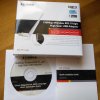Black Hole
May contain traces of nut
I have used the 702 as an AP and a router, it is also supposed to be capable of being a WiFi client (as it would be in a situation like this), a WiFi extender, and a bridge. Granted it only has the one physical Ethernet port, but it can be powered from the Humax USB port (or another port, or the included wall-wart USB power adapter - also handy for things).
I find the 702 so handy I have just bought two more so I can have each set to a different configuration that I use occasionally and not have to worry about reconfiguring them (once configured, they just boot up in that configuration each time). That accounts for two, the other two are available for anything else.
I find the 702 so handy I have just bought two more so I can have each set to a different configuration that I use occasionally and not have to worry about reconfiguring them (once configured, they just boot up in that configuration each time). That accounts for two, the other two are available for anything else.


